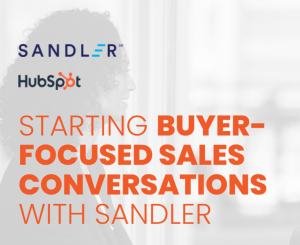
Salespeople who don't think of themselves as trusted advisors can often only ask one-dimensional questions to elicit one-dimensional answers. But, unfortunately, salespeople do this a lot.
My favorite example is a thermostat that measures ambient temperature against a standard setting that turns the heat source on or off.
The whole transaction is binary and, therefore, one-dimensional.
Harvard Professor Chris Argyris calls this single-loop learning. Argyris also describes a next step called "double loop learning," which takes an additional effort and turns the question back on the questioner.
It asks follow-up questions. In the case of the thermostat, for instance, double loop learning would wonder whether the current setting was the most effective temperature to keep the room and, if so, whether the present heat source was the most effective means of achieving it.
A double-loop process might also ask why the current setting was chosen in the first place.
In other words, double-loop learning asks questions about objective facts and the reasons and motives behind those facts.
I call it the context of the problem.
I use a third loop of learning, which occurs when you make it personal and apply it to yourself.
How does this change or impact you? What makes this significant in your world?
Selling should be a triple-loop learning experience.
Loop One: Questions should be focused on how to solve your client's problem and help them secure a successful solution.
Loop Two: Questions should be focused on how to help your client understand the context of the problem, how and how long it existed, and other things it is connected to. Help your client to see a greater sense of what you are doing for them.
Loop Three: The questions help your client understand how they will be different personally because of your work.
If you can lead your client through a triple-loop learning curve, you will be far more than just the next salesperson that comes through the door; you will quickly and honestly be viewed as a trusted advisor.
FREE REPORT |
|
Learn how to hook the attention of your buyers with what matters most, beginning a sales conversation that leads to more viable opportunities. |


